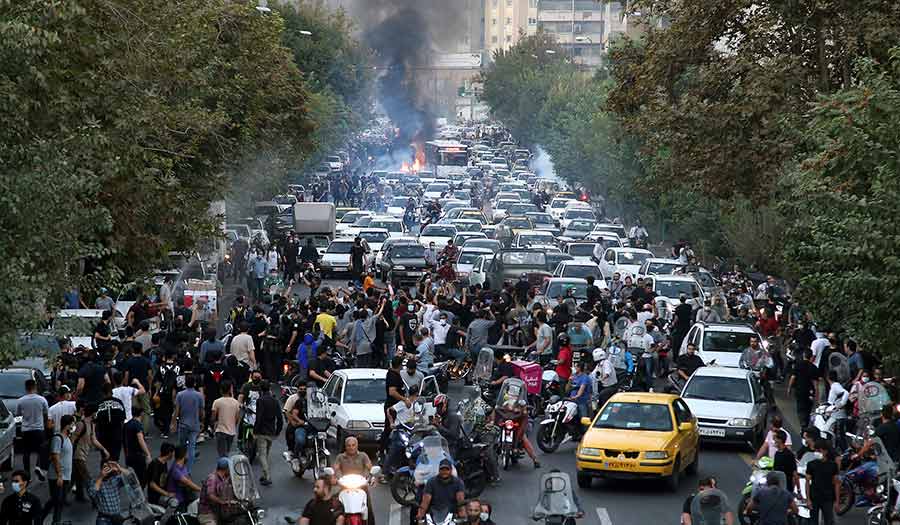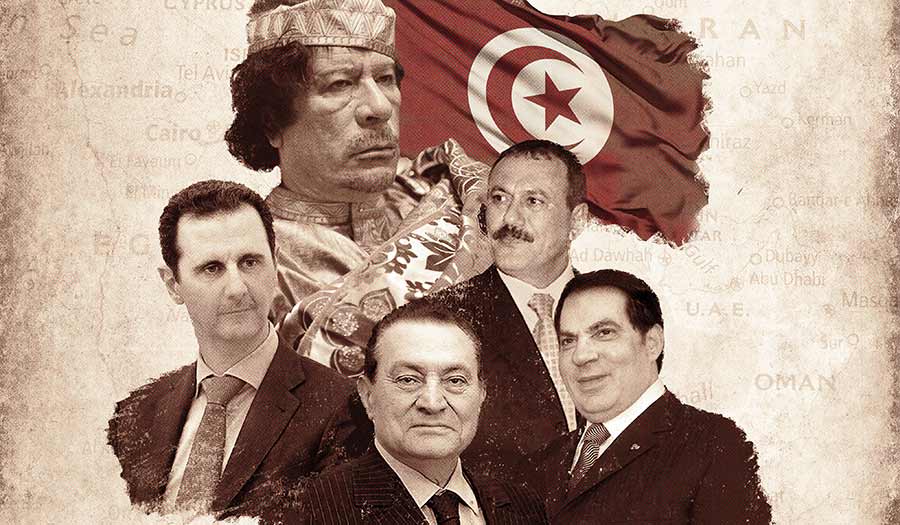 AP
AP
World News Desk
Learn the why behind the headlines.
Subscribe to the Real Truth for FREE news and analysis.
Subscribe NowDUBAI, United Arab Emirates (AP) – Iranians experienced a near-total internet blackout on Wednesday amid days of mass protests against the government over the death of a woman held by the country’s morality police for allegedly violating its strictly-enforced dress code.
An Iranian official had earlier hinted that such measures might be taken out of security concerns. The loss of connectivity will make it more difficult for people to organize protests and share information about the government’s rolling crackdown on dissent.
Iran has seen nationwide protests over the death of 22-year-old Mahsa Amini, who was detained for allegedly wearing the mandatory Islamic headscarf too loosely. Demonstrators have clashed with police and called for the downfall of the Islamic Republic itself, even as Iran’s President Ebrahim Raisi addressed the UN General Assembly on Wednesday.
The protests continued for a fifth day on Wednesday, including in the capital, Tehran. Police there fired tear gas at protesters who chanted “death to the dictator,” and “I will kill the one who killed my sister,” according to the semiofficial Fars news agency.
London-based rights group Amnesty International said security forces have used batons, birdshot, tear gas, and water cannons to disperse protesters. It reported eight deaths linked to the unrest, including four people killed by security forces. It said hundreds more have been wounded.
Iranian officials have reported three deaths, blaming them on unnamed armed groups.
Witnesses in Iran, who spoke on condition of anonymity for fear of reprisal, said late Wednesday they could no longer access the internet using mobile devices.
“We’re seeing internet service, including mobile data, being blocked in Iran in the past couple of hours,” Doug Madory, director of internet analysis at Kentik, Inc., a network intelligence company, said late Wednesday.
“This is likely an action by the government given the current situation in the country,” he said. “I can confirm a near total collapse of internet connectivity for mobile providers in Iran.”
Iran already blocks Facebook, Telegram, Twitter and YouTube, even though top Iranian officials use public accounts on such platforms. Many Iranians get around the bans using virtual private networks, known as VPNs, and proxies.
In a separate development, several official websites, including those for Supreme Leader Ayatollah Ali Khamenei, the presidency and the Central Bank, were taken down at least briefly as hackers claimed to have launched a cyberattack on state agencies.
Hackers linked to the shadowy Anonymous movement said they targeted other Iranian state agencies, including state TV.
Central Bank spokesman Mostafa Qamarivafa denied that the bank itself was hacked, saying only that the website was “inaccessible” because of an attack on a server that hosts it, in remarks carried by the official IRNA news agency. The website was later restored.
Iran has been the target of several cyberattacks in recent years, many by hackers expressing criticism of its theocracy. Last year, a cyberattack crippled gas stations across the country, creating long lines of angry motorists unable to get subsidized fuel for days. Messages accompanying the attack appeared to refer to the supreme leader.
Amini’s death has sparked protests across the country. The police say she died of a heart attack and was not mistreated, but her family has cast doubt on that account, saying she had no previous heart issues and that they were prevented from seeing her body.
Mr. Raisi has called for an investigation into Amini’s death. Iranian officials have blamed the protests on unnamed foreign countries that they say are trying to foment unrest.
Iran has grappled with waves of protests in recent years, mainly over a long-running economic crisis exacerbated by Western sanctions linked to its nuclear program.
- Real Truth Magazine Articles
- ANALYSIS
 10 Years Later: Is Another Arab Spring Coming?
10 Years Later: Is Another Arab Spring Coming?
Other Related Items:
More on Related Topics:
- U.S. Military Pier for Carrying Aid to Gaza Will Be Dismantled After Weather and Security Problems
- The Taliban’s Morality Police Are Contributing to a Climate of Fear Among Afghans, UN Says
- Israel vs. Iran – Insights and Aftermath
- The Leader of Lebanon’s Hezbollah Militant Group Warns Archenemy Israel Against Wider War


